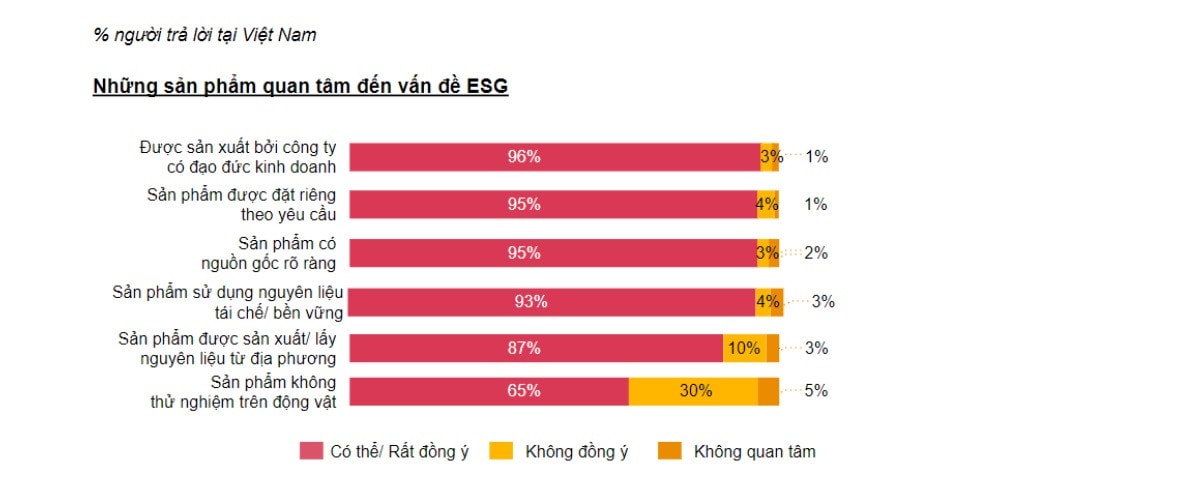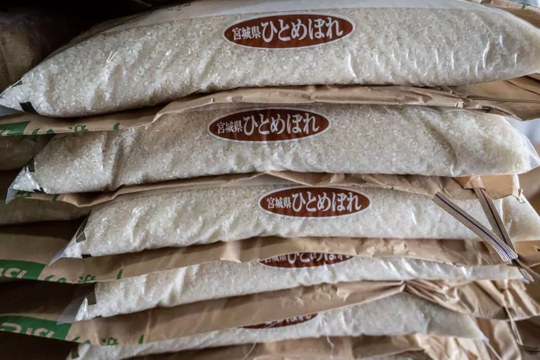Vietnamese reduce spending but are willing to pay more for ethical companies
96% of consumers surveyed by PwC Auditing Firm in Vietnam said they are willing to pay more for products from reputable and ethical companies.
Amid rising living costs globally, Vietnamese consumers are also adjusting their spending habits significantly.
62% of consumers will cut back on non-essential spending
According to the Consumer Habits Survey 2023, recently released by PwC, 62% of Vietnamese consumers will cut back on non-essential spending, lower than the global average (69%); 54% of consumers expect to spend less on luxury goods, followed by travel (42%) and electronics (38%).
Only 18% of Vietnamese consumers plan to cut spending on groceries and food, lower than the global average of 24%.
 |
Only 18% of Vietnamese consumers plan to cut spending on groceries and food. Photo: Hoang Ha |
64% of consumers expect to shop online more often, and the majority expect a more omnichannel shopping experience (delivery, pickup, ordering online and picking up in-store). However, they still prefer to shop in-store to verify product quality and experience.
Despite consumers planning to cut back on spending and the economic downturn, 96% of consumers surveyed in Vietnam said they are willing to pay more for products from reputable and ethical companies, 95% are willing to pay more for custom-made products, and 95% said yes to products with clear origins.
 |
Vietnamese consumers are willing to pay more for sustainable products. (Source: PwC Survey). |
Regarding the trend of using virtual universes (Metaverse) as a shopping channel, this method is still in its early stages globally, but Vietnam ranks second in Asia among countries with the highest desire to experience Metaverse-related activities: India (48%), Vietnam (43%) and Hong Kong (China) (42%).
Privacy concerns when shopping online
As online shopping continues to grow, consumers are increasingly concerned about data privacy. The majority of Vietnamese consumers (70%) said they are very or extremely concerned about their shopping interactions with social media platforms (63%) and third-party travel websites/portals (59%).
PwC suggests a number of priorities that businesses can consider to better serve customers and contribute to a sustainable consumption future. The priorities are, in order:
Differentiation strategy:Focus on developing product portfolios and appropriate features to meet the increasing demands of consumers, from a "response" state during Covid-19 to a "leading" state.
Focus on ESG factors:Leverage technology to collect, report and communicate on sustainability, while promoting honesty and transparency in business.
Data-driven customer outreach:Shift the focus from “customer” to “consumer” and establish information access privileges for consumers, by gathering data on consumer needs and behavior at different points in time, developing effective sales messages and offers from data-driven marketing strategies.
Future supply chain:Invest in predicting outcomes and impact in a changing multi-channel landscape so you can make clear decisions early on about innovation, differentiation, and go-to-market strategies.
Encourage innovation:Identify the skills needed to deliver a great customer experience, provide upskilling training for employees, encourage innovation in the way you work to speed up decision making, and systematize rapid change.
Digital transformation to reduce costs:Invest in digital capabilities to understand customer needs and manage inventory to drive efficiencies and increase resilience to change. Stay ahead of trends and capitalize on new business models (e.g., personalized consumption) with effective data management.



